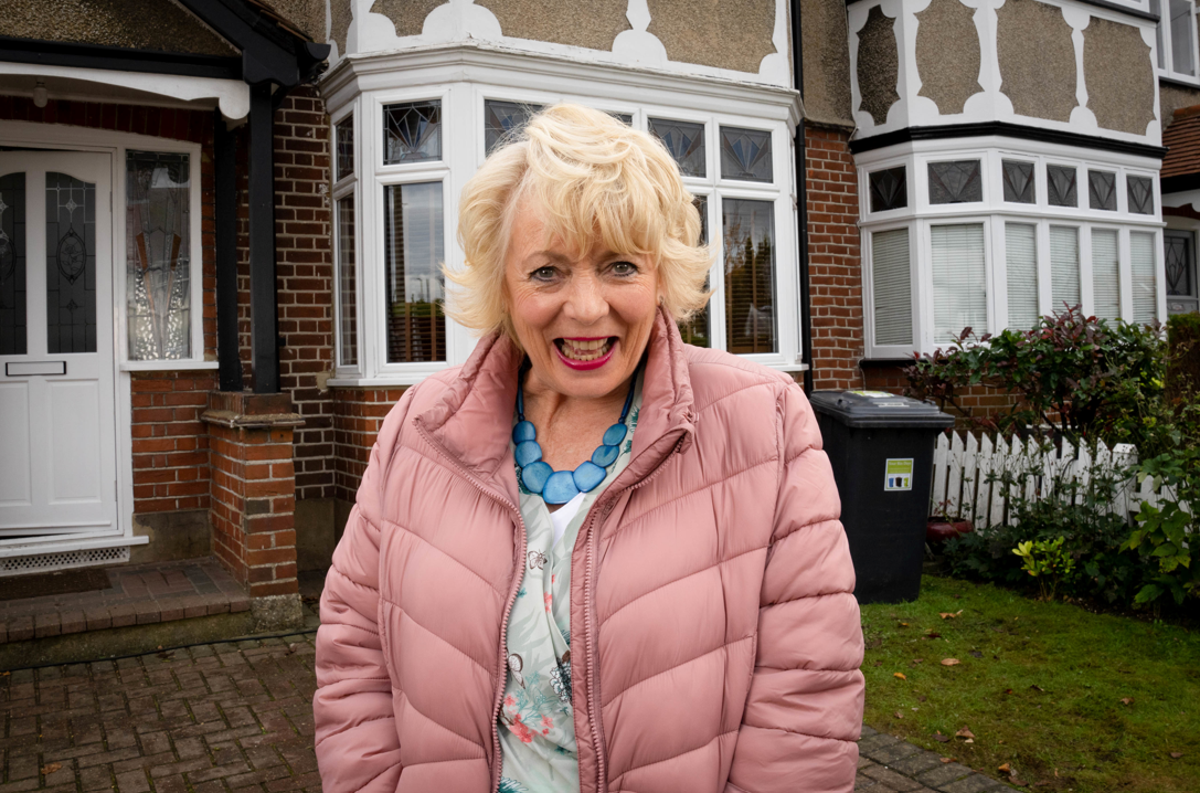Here We Go: The unassuming, unadventurous – but brilliant – comedy everyone should be watching

Great Britain, a land of averages. People are, on average, married, though the divorce rate suggests not especially happily so. They have a couple of kids and some support from extended family members. They live not in the capital and not in the middle of nowhere, but in one of Britain’s many suburban and dormitory towns. Enter, then, the Jessops – the calamity prone, Bedford-based, very average family at the heart of the BBC’s new cult sitcom, Here We Go.
There is an inherent sweetness to their personalities that perhaps separates them from your average Briton (or British comedy character). Patriarch (a word that seems totally ill-fitting) Paul (Jim Howick) is an unemployed former Olympic archer, struggling to impose any direction on his life. His wife Rachel (Katherine Parkinson) is trapped in frustrated suburbia, while her brother Robin (the show’s creator, Tom Basden) lurches from disaster to disaster. Rounding out the family unit are the Jessop children, sulky Amy (Freya Parks) and aspiring YouTuber Sam (Jude Collie), through whose lens the whole show unfurls. And floating over everything is Alison Steadman’s Sue, Paul’s mother, a classic “feeder”. “We’re a curious family,” Robin announces at a family dinner. And they are, but only in a lightly catastrophic way.
Light catastrophe is something that British comedy has always done well, from Peep Show to Outnumbered. And Here We Go is definitely the latest iteration of this formula: a sitcom of almost claustrophobic normalness. The absurdities of family life taken just a notch or two above reality. A pool fills with hair dye, a school prize-giving is interrupted by an outbreak (if that’s the right word) of piles, a salsa class descends into an all-you-can-eat buffet, a night-vision camera catches an accidental sex tape. It’s low stakes farce, the sort we all encounter a few times over the years (though which the Jessops seem to run into every other day).
Anchored by brilliant turns from Howick as “hearty” Paul and the ever-reliable Parkinson as anxious Rachel, the show excels at creating the internal chemistry necessary to depict family life. While Steadman will bring along the Gavin and Stacey fans, the real secret weapon is Basden, who not only fills the show with punchy dialogue but delivers a scene (after scene) stealing performance as Robin, a sweet-natured monogamist trapped in the mind (and body) of a womaniser. Asked whether he’s going to try Tinder, he responds: “Try it? I’m gonna complete it mate!” Needless to say, by the end of the episode he will be disrupting his ex-girlfriend’s wedding with a combination of grovelling and dancing.
In the weeks since its release, Here We Go has become something of a slow-burn hit for the BBC. Secreted away on iPlayer (OK, it’s also airing on BBC One, but who’s watching terrestrial TV on a Friday night?) the show launched to little fanfare, but has gradually built up a cult following of Jessopheads. And while the comedy is milder than recent sleeper hits like This Country and Brassic, it’s symptomatic of its unshowy nature that it would take several weeks to find its people. But whether it’s the frustrated ambitions of adulthood or the recalcitrance of adolescence, its formula is simple and universal.
The first-person camera style (“I’m making a documentary about the family for my media studies coursework,” Sam explains, somewhat nonsensically) and a non-linear chronology that jumps backwards and forwards between times and plotlines, is as close as Here We Go comes to experimentation. But that’s not what Here We Go is all about. Just as when the whole family goes out for an Italian meal and all order the same pizza (“I hoped you’d experience a range of Ligurian dishes, not order eight identical pizzas,” the restaurant’s owner complains), the show itself is deliberately unadventurous. We routinely commend comedy for the risks it takes, but – cliché alert – sometimes the biggest risk you can take is none at all.
Much of good comedy relies upon the intersection of bathos and hyperbole. The mundanity of the everyday running headfirst into flights of creative fancy. Here We Go uses the averageness of British life as a backdrop for misadventure and that mild, quotidian cringe we all experience. The surprise triumph of the show lies in its unassuming nature, by turns charming and infuriating, caustic and sentimental, funny and depressing. Not unlike your average British family, then.

 Yahoo News
Yahoo News 
